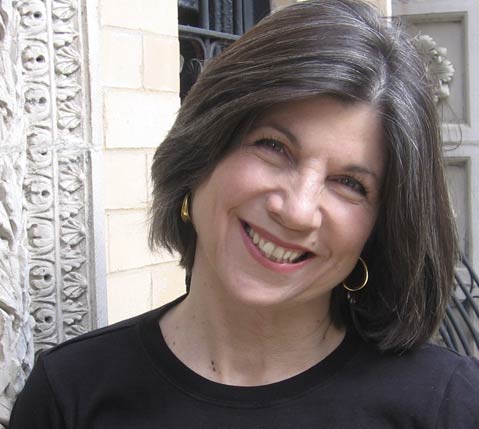Starshine Roshell Chats with Anna Quindlen
S.B.'s Sassiest Columnist Talks About the Trade with Newsweek's Back Page Pundit

Columns are a balancing act. That’s what I tell my writing students at Santa Barbara City College.
More nuanced than news, less free-form than fiction, a column must perch on the precarious peaks between Fresh and Familiar, Fair and Unflinching, Astute and Outrageous.
With her smart, snappy take on politics and society, Pulitzer Prize-winning journalist Anna Quindlen has spent years fox-trotting back and forth across the column-writing tightrope-and making it look easy. First on the New York Times op-ed pages and now in Newsweek, she pairs common-sense thinking with elegant, rhythmic writing, ever reminding us of how current events intersect with real life.
She’s also a best-selling novelist and mother of three. In other words, she’s my unteetering hero.
On Tuesday, February 3, Quindlen will speak at UCSB about the value of reading and writing in a democratic society. I pitched her some questions about column-writing, which she answered via email from her home office on Manhattan’s West Side.
In what do you consider yourself an expert? I’m not an expert in anything, although I do make a pretty great tomato sauce with meatballs. What makes me qualified to write a column is that I’m a pretty dogged reporter with indefatigable curiosity.
I would hope readers are sophisticated enough to understand that all column writing is merely one person’s opinion. In my case I try hard to make it an informed opinion.
Do you ever have second thoughts on a column as you click “send”? Occasionally I wonder if I’ve been too revelatory. Inevitably those turn out to be the columns with the greatest reader reaction, so I’m now less inclined to take my own interior nay-saying too seriously.
Are you ever at a loss for something to write about? I actually think the more common problem I’ve had is what to jettison. Because of the extraordinary succession of news events during my columnizing years-Gulf War, Anita Hill, Bill Clinton, Monica Lewinsky, First Lady Hillary Rodham, 9/11, the invasion of Iraq, Senator Hillary Rodham, Barack Obama-I’ve almost always had five or six ideas in a given week. Some of them are like milk; there’s a sell-by date. If I pass on them, at least in the current form, they’re sour. So my constant problem is picking and choosing. What has legs? What’s a flash in the pan?
What are your goals when you sit down to write a column? I want the reader to feel engaged and educated, to say, “Well, I never thought about it that way before.” When someone says that to me, I feel as though I’ve hit a home run. Or at least a triple.
How much does reader reaction inform your own opinion of your work? I’ve gotten past being cowed or intimidated by reader reaction. If I hadn’t, I wouldn’t have kept writing about abortion, gay rights, or the Catholic Church, the three subjects which inspire the most vitriol. And I appreciate hearing from readers who think I’m the greatest, but you’re in real trouble if you buy into your own hype. Luckily I spend most of my time by myself in a little room looking at a computer screen wondering why I didn’t go to med school. I find that focuses the mind.
Of which column(s) are you proudest? There’s one I wrote called “The Good Enough Mother” that I’m still pretty happy with. I’m proud that I was one of the few people who refused to write hosannas or apologies for Richard Nixon and John Paul II. Sometimes it’s a columnist’s job to speak ill of the dead.
Are there any that, upon second reading, make you cringe? I don’t reread my own work. I find it excruciating. Doing audio books of your own work should be punishment for treason.
What are the reactions of family members and friends who get mentioned in your columns? If I am going to mention someone in a column, I send them the column several days before I’m scheduled to file. They have absolute veto power. If they’re upset, it’s gone. Friends and family are forever; columns are transitory.
Columnist, novelist, and, from the looks of it, a near-perfect mother : Is there anything you’re very, very bad at? Please? I have ADD, so my ability to focus is highly unreliable. I’m pretty untidy. I interrupt too much in conversation. I can’t play team sports well, and I can’t play tennis at all.
My kids would probably howl at that near-perfect thing. In fact I think one of the things they get a kick out of is the dichotomy between how the world sometimes sees me, and what they think I’m really like: Great cook, not particularly well-wrapped, acts foolish much of the time.
4•1•1
Anna Quindlen will speak at UCSB’s Campbell Hall at 8 p.m. on Tuesday, February 3. For more information, call 893-3535 or visit artsandlectures.ucsb.edu.
CORRECTION: A previous version of this story erroneously stated that Quindlen has four children. The article has since been corrected to say she has three.



